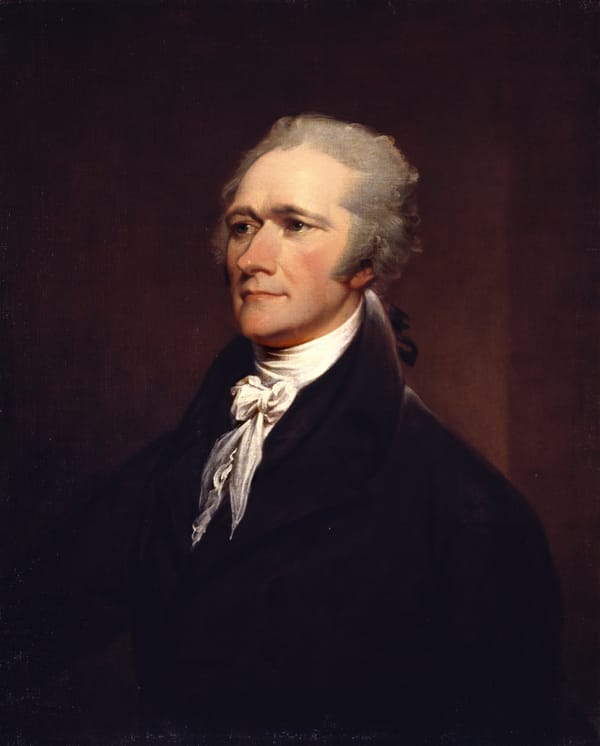What's the Constitution Missing? A Constituency
People are starting to talk about remaking the Constitution.
It makes sense, right? We're in a state of constitutional collapse due to the election of a usurper president, and his campaign of usurpation since taking office sixteen days ago. Constitutional rules are being trampled left and right, indeed in ways that strike at the heart of the constitutional system itself. People have all sorts of ideas about what went wrong, what flaws in the Constitution led us to this point.
Which is, of course, music to my ears! I have tons of ideas of my own about the ways in which the federal Constitution is flawed and how it should be fixed. And I also have plenty of thoughts about the ways in which the deformities of our constitutional order contributed to its collapse.
But I think it's important to be clear about something: right now, at this particular moment, the biggest problem with the Constitution is simply that it is not being followed.
I have been saying for a while now that the election represented the People walking away from the Constitution. That, to my mind, was the implication of the fact that Trump is not lawfully able to serve as president. And, sadly, I think that's been born out by the events of the last few weeks. We see it in something like Sen. Thom Tillis (R-NC) saying, well yeah, what Elon Musk is doing to the Treasury Department is unconstitutional, but who cares about a little thing like that? We see it in the way the media is treating all of this, awed by the display of arbitrary power and essentially unable to comprehend the idea that it's bad that it's all flagrantly illegal.
We see it in the sheer brazenness of the illegality. Trump is not acting like someone who thinks his power flows from the Constitution. Neither are his lackeys. They don't quite literally not make any argument at all that their actions are lawful, but the arguments they do make are so insultingly terrible that they can only be understood as rejecting the very idea that they are bound by law. Unsurprisingly, the law courts have not been particularly amused by this attitude, and they keep issuing preliminary injunctions against all the bullshit Trump wants to do. But there is still a lingering drama about whether those injunctions will actually be obeyed. (It seems weirdly hard to pin this down, particularly as to the spending freeze.)
And in any event, the courts aren't really equipped to deal with this kind of broad challenge to the entire constitutional order. Their role is to, well, say what the law is. They can't make people acknowledge that they are supposed to follow the law. This is not even an obscure point: Hamilton says exactly this in Federalist 78, that the judiciary "may truly be said to have neither FORCE nor WILL, but merely judgment; and must ultimately depend upon the aid of the executive arm even for the efficacy of its judgments."
Normally this isn't supposed to matter. Normally you have an extremely broad consensus that the Constitution is law and must be obeyed as such. Note that this consensus can include people who think the Constitution is flawed in many ways, that it should be amended, even that it should be replaced altogether! All of these views are compatible with the idea that it is currently law, and that public officials have no power to act except insofar as they are authorized by the Constitution. You ideally want the agreement on that point to be, like, over 90% of the country, close to 100% if you can get it. It needs to just not be a point in controversy. Everyone needs to understand that if someone breaks the law, if they violate the Constitution, that's bad and demands condemnation and remedy.
But we find ourselves with an unconstitutional president who ran on an anticonstitutional platform, and won. He is acting as though his will is superior to the Constitution, and at least half the country has acquiesced in that proposition. That's what we need to fix, most urgently. The actual fixes are not that complicated, whether we're talking about remedies under the existing Constitution or changes to the Constitution itself, or even making a whole new one. But we can't actually put any of those fixes into effect, because people don't want to. The political will is lacking – which was also true during Biden's term, by the way, there were plenty of things we could have been doing to Trump-proof the government but not the political will to do them.
People talk about how the Constitution doesn't enforce itself, and that's true. But it also doesn't CREATE itself. The People do that. The document is just the instrument through which We act; it is the recording of our deeds. What this entails is that the Constitution exists only insofar as the People still want it to, and insofar as they continue to insist that their representatives abide by it. By electing Trump president after he sought to overthrow the government, the People have abandoned these commitments. We're now living through the consequences of that abdication.
It is just barely possible, I suppose, that people could go back to caring about the Constitution of 1789 and it could come back into existence. I've seen some discussion of this scenario lately, the idea that Trump's tenure could come to be seen as a "constitutional aberration." I'm a bit skeptical, though. My sense is that we're going to need a new moment of constitutional creation. And of course I have Thoughts on what that should look like. But either way, what we need is to somehow reforge the national consensus, and commitment, by the entire People of the United States to the project of constitutional self-government.
How do we get there? That's a hard problem. But I'm pretty sure it's the problem we need to work on solving.

